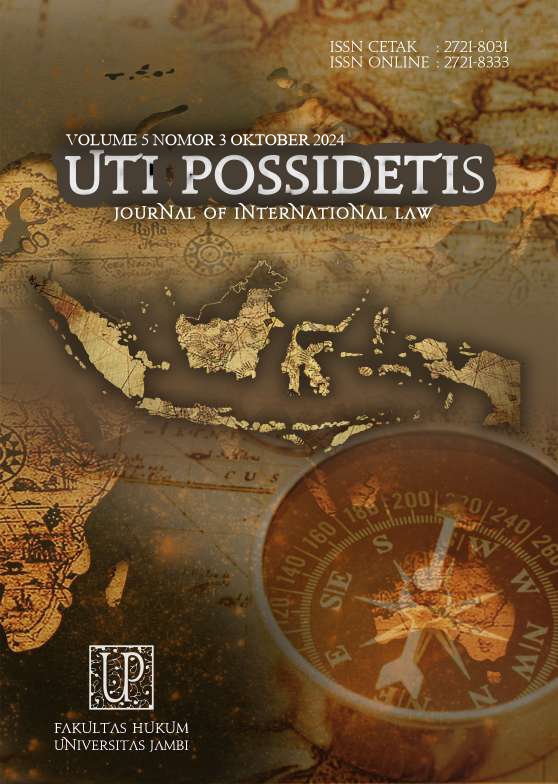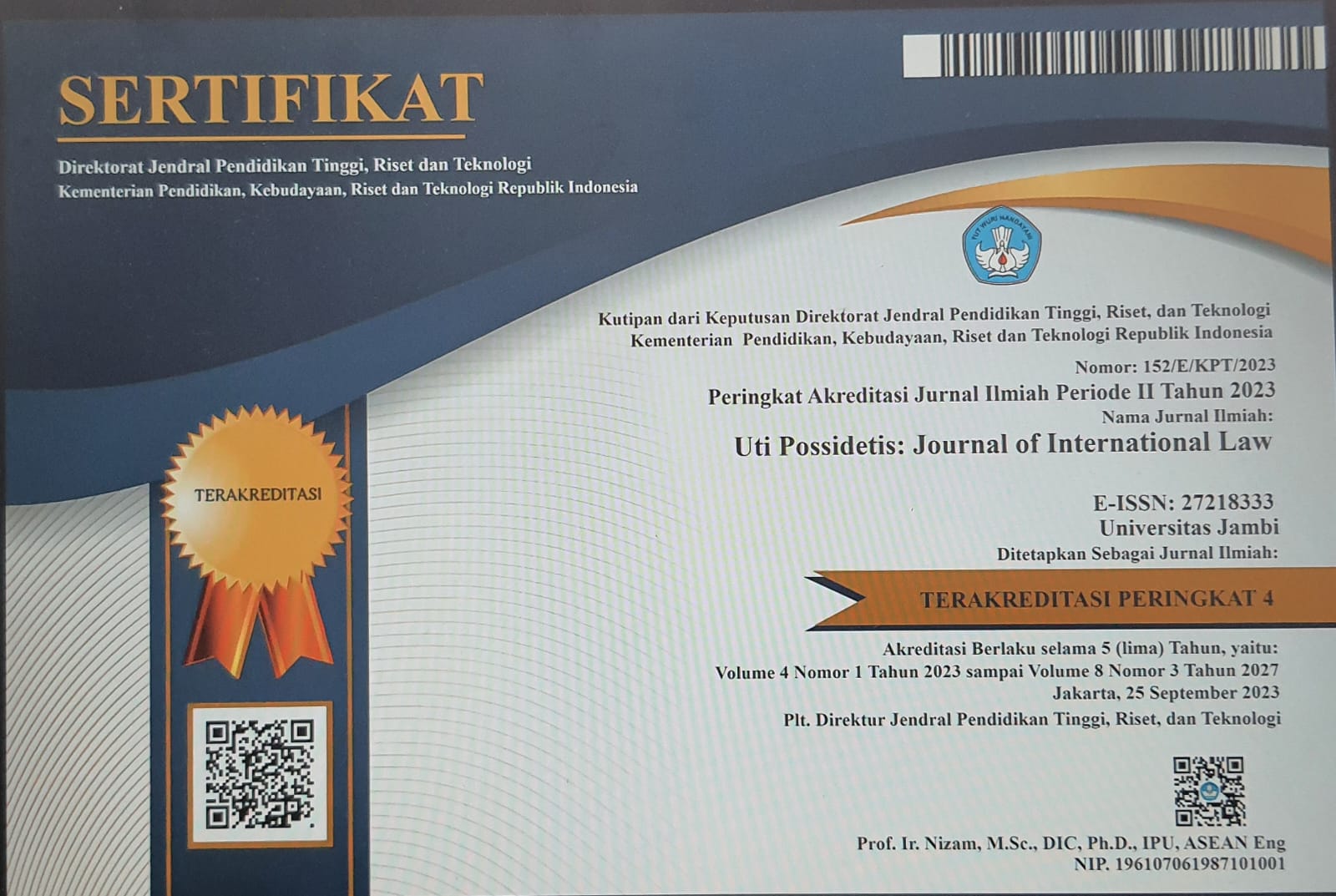Forced Displacement and Blockade Reviewed From International Humanitarian Law: A Case Study of the Humanitarian Attacks in Rafah
DOI:
https://doi.org/10.22437/up.v5i3.36281Keywords:
blockades;, forced displacement;, humanitarian lawAbstract
This paper discusses the forced displacement regulated by the Geneva Conventions of 1949 and the use of blockades as a wartime strategy under international humanitarian law. The purpose of this paper is to analyze how forced displacement and the use of blockades as wartime strategies have been applied in the humanitarian incident in Rafah. This study employs normative research methods with case and legislative approaches. The paper finds that forced displacement can also be categorized as genocide if accompanied by the intent to destroy a particular group. The case in Rafah illustrates a clear violation of humanitarian law, where Israel forced Palestinians to flee, violating Article 49 of the Geneva Convention and potentially prosecutable by the ICC. A blockade is a wartime strategy that restricts access to an area, weakening defenses by cutting off supplies of food and medicine. Although permitted by international law, the implementation of a blockade must be declared, effective, impartial, and respect the rights of neutral states. However, blockades are often misused and result in human rights violations
Downloads

Downloads
Published
How to Cite
Issue
Section
License
Copyright (c) 2024 Fadhli Muhaimin

This work is licensed under a Creative Commons Attribution 4.0 International License.






